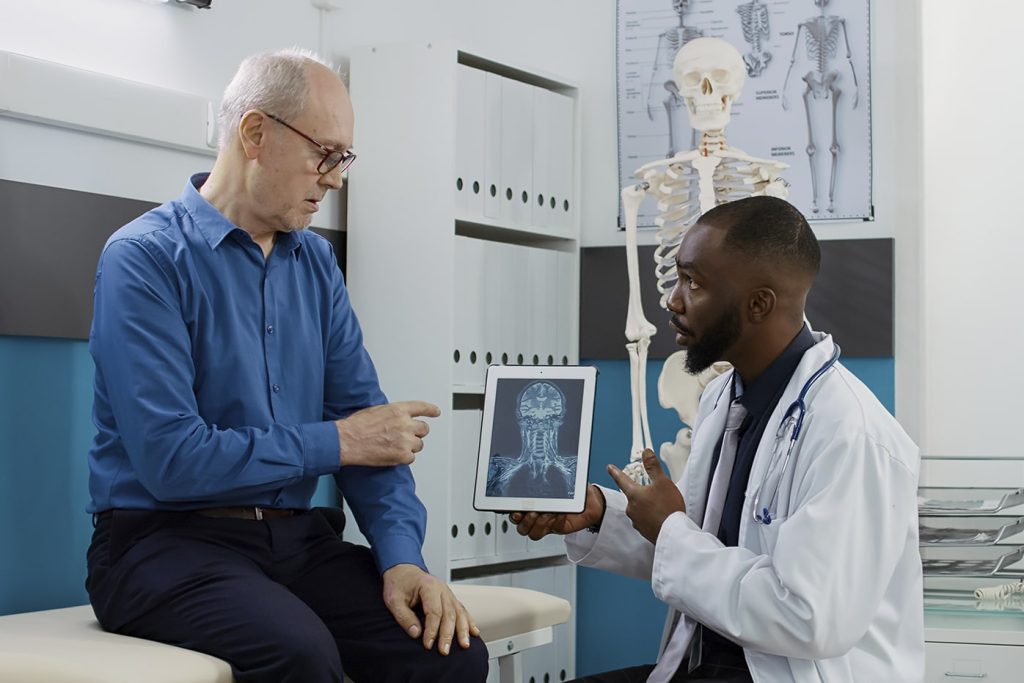Accidents at Work
Guidance for Claimants in Work-Based Personal Injury Cases.
As a specialist medico-legal reporting agency, we provide comprehensive medical evidence and rehabilitation services for individuals involved in workplace-related personal injuries. Our goal is to assist you by offering expert medical assessments and evidence to support your case.
Related Content:
Consultant Medical Reporting:
Common Types of Workplace Injuries:
Slip, trip, and fall accidents
Repetitive strain injuries
Vehicle-related incidents
Injuries involving equipment or machinery
Exposure to hazardous substances
Work-Based Personal Injury Claims
If you have suffered an injury at work due to your employer’s negligence or breach of duty, you may be eligible to make a claim. This applies to all types of employees, whether full-time, part-time, temporary, casual, or permanent. Additionally, self-employed individuals may also be eligible if their injury was caused by someone else’s negligence.
It’s crucial to know that compensation for workplace injury claims is typically covered by the employer’s insurance company, not by the employer directly. Legally, every employer is required to hold Employers Liability Insurance, which covers compensation awarded following an accident at work. To successfully claim compensation, it is necessary to demonstrate that your injury resulted from your employer’s negligence or breach of duty. Common causes include insufficient training, failure to provide safe equipment, or not maintaining a safe working environment.
Here are some simple steps to take following a workplace injury:
Step 1. Seek Immediate Medical Attention
Your health is paramount. If you’ve been injured, seek medical attention immediately. Even if you do not require hospital treatment, consult your GP to ensure that your injuries are accurately documented. This medical record will be crucial for your claim.


Step 2. Report the Injury to Your Employer
All workplace injuries, regardless of severity, must be reported to your employer. They are required to log all incidents, typically through an accident book or reporting system.
Step 3. Gather Evidence
Collect as much evidence as possible. This includes details of the accident, witness information, photographs of the scene and your injuries, and medical records. These will be vital in supporting your claim.


Step 4. Consult a Specialist Solicitor
Contact a personal injury solicitor promptly after the accident. They will guide you through the claims process, help establish the validity of your claim, and assist in gathering necessary evidence.
The compensation amount for workplace injuries can vary significantly depending on the severity of the injury, its impact on your ability to work, and any financial losses incurred as a result. Your solicitor will provide guidance on what you may be entitled to. You have a strict time limit of three years from the date of the accident or from when you became aware of your injury to make a claim. It’s essential to seek legal advice as early as possible to ensure you meet this deadline.
Key Facts
Impact on Your Employment: It’s natural to be concerned about the impact of making a claim on your job. However, it is illegal for an employer to dismiss or treat you unfairly because you’ve made a claim for a workplace injury.
Addressing Common Misconception: Many believe that you can only claim compensation if your injury resulted in time off work or loss of earnings. This is not true. You can still make a claim even if you received full pay or company sick pay during your absence.
Employer’s Duty of Care: Employers have a legal duty to ensure a safe working environment. This includes providing and maintaining safe tools and machinery, offering adequate training, and protecting employees from harmful substances. A breach of these duties can justify a compensation claim.
Supporting Your Claim: Keeping a diary that documents how the injury has affected your life can significantly support your claim. This includes noting changes in sleep patterns, hobbies, work, and daily activities.
Financial Losses and Expenses: Ensure you provide evidence of any financial losses, such as loss of earnings, medical bills, travel expenses, and other costs incurred as a result of the injury. These details will strengthen your compensation claim.

